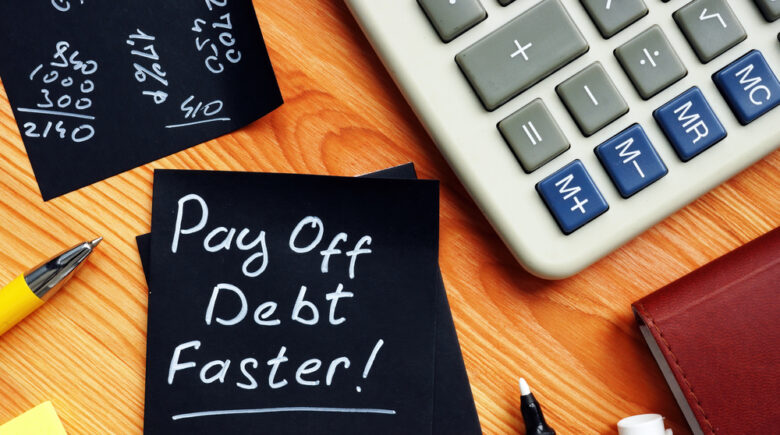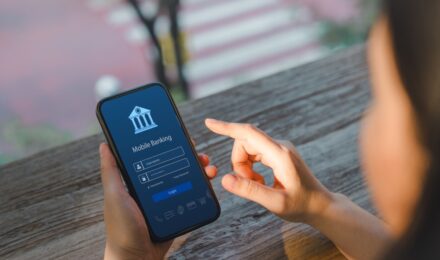Accumulating debt is undoubtedly a cancer you need to get rid of in life. Although debt or money lending is an inevitable part of life, you need to pay it back as soon as possible. Financial institutions are quite generous while offering you a loan, but the situation can get quite messy when they come to pick it up due to delayed or failure to repay. Therefore, you must have a strategic plan once you borrow cash from them and have a way to repay as soon as you can.
How do you manage to pay back debt fast? Here are some tips worth considering:
1. What’s your debt?
The first thing you need to do while making efforts to pay back your debt is to consolidate them and know how much they have accumulated. Calculate both your small and larger debts without leaving any of them out. Once you do so, classify them based on the repayment period and interest rate that each has.some of the common forms of debt may include student loans, mortgages, business credit, or asset loans. Once you know how much you owe, you can understand its magnitude and plan how you will payback. Create a budget based on your income flow and expenses because you need to know how much you can spare to pay back your debts in good time. You should also include any extra income you are looking forward to receiving soon that you can use to pay back your debts because you are giving them a priority this time.
2. Payback your highest debts and those that attract high interest
Once you classify your debts based on how large they are, an interest rate required, you need to pay off those that are highest. Relieving yourself off high debts lets you progress to your smaller debts easily. Your budget should prioritize larger debts because they accumulate high interest and could be a struggle for you if you opt to ignore them and first pay the lesser ones. Consolidate all your large debts and pay them off based on the payback period the financial institutions had issued you. While you do so, make partial payments to all so that you can complete each simultaneously rather than paying one and end up with the others. Remember, the financial institutions need to see your efforts; thus, ignoring one and prioritizing the other is the last thing you need to do.
3. Stop using your credit card
The moment you decide its time to get yourself off debt, you should also be ready to stop using your credit card. Credit cards are quite useful, but they are also a form of debt. It would not make sense that you are paying debt while still accumulating small bits on your card that will eventually be credited from your bank. It would be best if you had all the finances you can get to pay off your debts, so you can stop spending money that you may not have in the name of shopping or living luxuriously. Look for all your credit cards, whether at home or in your wallet, and place them safely somewhere you can remember. Do not be enticed by the thought of carrying them because you are now taking charge of your debts and need to succeed in paying off your debt.
4. Utilize what you have to get more money
Debt repayment should make you think out of the box. You should not only rely on your income flow because it may not be enough for you. Look into ways that you can get more cash and use it to pay off your debt. You can consider selling off assets or things at home that you do not use as a way to accumulate funds to repay your debt. Once you sell off these items, do not spend the cash you get on anything else if it doesn’t attract a return on investment. Include the money you get into your budget based on how much you have and not what you are forecasting to get. It would help if you had accurate figures and not assumptions for this to be right. If you have an asset that you can liquidate, such as an old house or car that you can sell and buy another to make you money, its time you should consider the move. Any return on investment sold should first be used to pay off the debts you have before you get to enjoy its luxuries.
5. Change your habits
The decision to pay off your debts can be quite demanding to how you spend your money. You will have to change some of your spending habits to prioritize your debts for quite some time. Changing your habits will mean less shopping, holiday treats, vacations, partying, and even buying gas for your vehicle. Making such sacrifices in the short-run will ensure you have enough to pay off your debts in a good time. As you change your habits, do not forget to alert anyone else who uses your credit cards or withdraws cash from your banks, such as your spouse or kids, because you need to be all in. However, while making these sacrifices, do not forget to keep track of other expenses and utilities that you need to cater to because pushing them forward is another form of debt. Strike a balance on what you certainly need as an essential to survival and what you can do without for the time being.
Final thoughts
Once you pay off your debt, the feeling of reliving is undoubtedly undeniable. You have no one behind your back asking for their cashback, and all you can think about is how well you can utilize the money you have. You feel some freedom since all the finances you will be getting are used and not due to anyone but you. Therefore, always strategize on paying back your debt as fast as you can without any excuse. Do not also forget only to borrow what you need because that’s where most people go wrong. Borrowing in large amounts can get overwhelming for you, and repaying will undoubtedly be an issue. However, once you borrow only the required amount paying off the debt is no hassle but relatively easy.
Accumulating debt is undoubtedly a cancer you need to get rid of in life. Although debt or money lending is an inevitable part of life, you need to pay it back as soon as possible. Financial institutions are quite generous while offering you a loan, but the situation can get quite messy when they come to pick it up due to delayed or failure to repay. Therefore, you must have a strategic plan once you borrow cash from them and have a way to repay as soon as you can.
How do you manage to pay back debt fast? Here are some tips worth considering:
1. What’s your debt?
The first thing you need to do while making efforts to pay back your debt is to consolidate them and know how much they have accumulated. Calculate both your small and larger debts without leaving any of them out. Once you do so, classify them based on the repayment period and interest rate that each has.some of the common forms of debt may include student loans, mortgages, business credit, or asset loans. Once you know how much you owe, you can understand its magnitude and plan how you will payback. Create a budget based on your income flow and expenses because you need to know how much you can spare to pay back your debts in good time. You should also include any extra income you are looking forward to receiving soon that you can use to pay back your debts because you are giving them a priority this time.
2. Payback your highest debts and those that attract high interest
Once you classify your debts based on how large they are, an interest rate required, you need to pay off those that are highest. Relieving yourself off high debts lets you progress to your smaller debts easily. Your budget should prioritize larger debts because they accumulate high interest and could be a struggle for you if you opt to ignore them and first pay the lesser ones. Consolidate all your large debts and pay them off based on the payback period the financial institutions had issued you. While you do so, make partial payments to all so that you can complete each simultaneously rather than paying one and end up with the others. Remember, the financial institutions need to see your efforts; thus, ignoring one and prioritizing the other is the last thing you need to do.
3. Stop using your credit card
The moment you decide its time to get yourself off debt, you should also be ready to stop using your credit card. Credit cards are quite useful, but they are also a form of debt. It would not make sense that you are paying debt while still accumulating small bits on your card that will eventually be credited from your bank. It would be best if you had all the finances you can get to pay off your debts, so you can stop spending money that you may not have in the name of shopping or living luxuriously. Look for all your credit cards, whether at home or in your wallet, and place them safely somewhere you can remember. Do not be enticed by the thought of carrying them because you are now taking charge of your debts and need to succeed in paying off your debt.
4. Utilize what you have to get more money
Debt repayment should make you think out of the box. You should not only rely on your income flow because it may not be enough for you. Look into ways that you can get more cash and use it to pay off your debt. You can consider selling off assets or things at home that you do not use as a way to accumulate funds to repay your debt. Once you sell off these items, do not spend the cash you get on anything else if it doesn’t attract a return on investment. Include the money you get into your budget based on how much you have and not what you are forecasting to get. It would help if you had accurate figures and not assumptions for this to be right. If you have an asset that you can liquidate, such as an old house or car that you can sell and buy another to make you money, its time you should consider the move. Any return on investment sold should first be used to pay off the debts you have before you get to enjoy its luxuries.
5. Change your habits
The decision to pay off your debts can be quite demanding to how you spend your money. You will have to change some of your spending habits to prioritize your debts for quite some time. Changing your habits will mean less shopping, holiday treats, vacations, partying, and even buying gas for your vehicle. Making such sacrifices in the short-run will ensure you have enough to pay off your debts in a good time. As you change your habits, do not forget to alert anyone else who uses your credit cards or withdraws cash from your banks, such as your spouse or kids, because you need to be all in. However, while making these sacrifices, do not forget to keep track of other expenses and utilities that you need to cater to because pushing them forward is another form of debt. Strike a balance on what you certainly need as an essential to survival and what you can do without for the time being.
Final thoughts
Once you pay off your debt, the feeling of reliving is undoubtedly undeniable. You have no one behind your back asking for their cashback, and all you can think about is how well you can utilize the money you have. You feel some freedom since all the finances you will be getting are used and not due to anyone but you. Therefore, always strategize on paying back your debt as fast as you can without any excuse. Do not also forget only to borrow what you need because that’s where most people go wrong. Borrowing in large amounts can get overwhelming for you, and repaying will undoubtedly be an issue. However, once you borrow only the required amount paying off the debt is no hassle but relatively easy.



